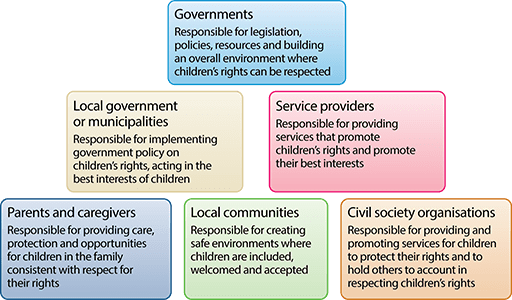Contents
Child’s rights in the family, responsibilities, upbringing
The rights of the child in the family are protected by law, regardless of whether she is a native or a foster child. In addition, the child gradually develops obligations that are built not only on the basis of the law, but also on the principles of morality.
Parenting and other rights
Rights appear in a person from the moment of birth. They can be divided into two groups: personal non-property and property.
Violation of the rights of the child in the family can bring perpetrators to justice
Personal rights include the following:
- To be brought up in a family, to live together with parents, to receive care and attention from loved ones.
- Know the mother and father, communicate with all close relatives, if it is not forbidden to them by a court decision.
- The right to protection from parents or government authorities.
- The ability to express your wishes regarding personal, legitimate interests. After 10 years, the child’s consent is required upon adoption and the restoration of the rights of the parents.
- The right to a surname, name and patronymic, which are given on the basis of a marriage certificate. After 10 years, the child has the right to change personal data with the consent of the mother and father.
These rights are provided by law and govern family relationships.
Among property, the law provides for the possibility of a child to receive support from parents, other relatives, as well as social benefits from the state. He has the right to receive income, use and own the property of the parents with their consent, has the right to donated and inherited property.
The mother, father or persons replacing them must realize, protect the rights and legal interests of a minor. In case of violations of the rights to protect the child, the guardianship authorities, the prosecutor’s office or the court arise.
Responsibilities of the Child and Parents
Obligations appear in the child gradually. They are based on law and moral principles.
The child is obliged to receive basic education from 6 to 17 years old, after which he can refuse further studies. Minor boys from a certain age are required to register for military service. Children must comply with the laws, since from the age of 14 they can be prosecuted, including criminal ones.
Adult children are obliged to support their parents.
Family relationships are based mainly on moral principles, common interests, traditions, and mutual assistance. Parents should educate the child well so that he becomes a responsible person, treats people with respect. It is important to teach him to manage his behavior, to bear moral responsibility for his actions.
Respect the rights of your children and do not forget about your own responsibilities.










